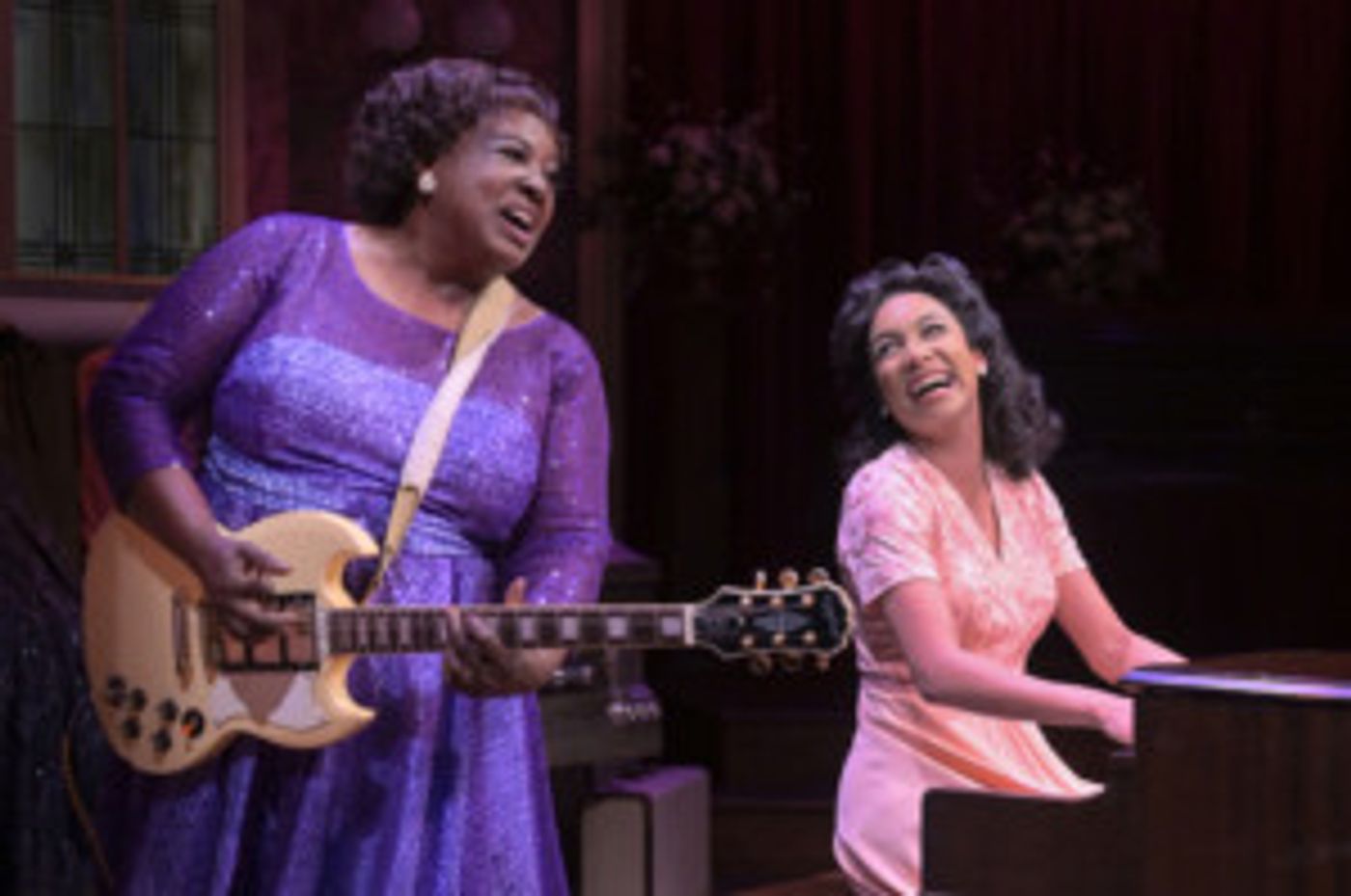Review: MARIE AND ROSETTA At Lucie Stern Theatre: Outstanding Homage To Gospel Legends Rosetta Tharpe And Marie Knight
 Developed in 2015 as part of TheatreWork's New Works Festival, George Brant's Marie and Rosetta settles in for a month-long toe-tapping, spirit raising homage to a rock n roll /gospel legend. Sister Rosetta Tharpe, who played the juice joints and the churches in the mornings, would go on to influence Elvis Presley and Ray Charles on her way to the Rock and Roll Hall of Fame.
Developed in 2015 as part of TheatreWork's New Works Festival, George Brant's Marie and Rosetta settles in for a month-long toe-tapping, spirit raising homage to a rock n roll /gospel legend. Sister Rosetta Tharpe, who played the juice joints and the churches in the mornings, would go on to influence Elvis Presley and Ray Charles on her way to the Rock and Roll Hall of Fame.
Robert Kelly directs this two-hander with deft subtlety, allowing for two tour de force performances by Michelle E. Jordan as Tharpe and Marissa Rudd as her partner and future gospel legend Marie Knight. The story takes place in a funeral parlor in Mississippi 1946, beautifully appointed by set designer Christopher Fitzer.
Tharpe, already a star with big bands and gigs at respected clubs like the Cotton Club, is auditioning young church choir standout Marie as a prospective partner. In competition with the likes of Mahalia Jackson, Tharpe, whose material borders on the risqué bawdy blues of Bessie Smith, wants to add a touch of 'high church' respectability to her act.

Marie isn't as young and innocent as Rosetta believes; she's 26, married to a preacher and has two kids. Still, she's naïve and in awe of her idol. Afraid of sleeping in funeral parlor, she'll go on the road with Rosetta is she can pass muster. Rosetta shows off her style on the rousing "This Train" and asks Marie to show her stuff. Marie responds with the gospel tune "Were You There" - the disparity between the two quite evident.
Rosetta speaks of the problems black musicians will face in the South - discrimination on a major scale and cheating managers. They'll have to rely on the 'good samaritan circuit'. Rosetta and Marie Will Bond over the course of the play, each adopting a bit of each other's style. There's a lovely scene in which they battle over the tune "Rock Me", Marie needing to learn to swing her hips and Rosetta toning down her 'blue' image.

All the songs presented were originally recorded by Tharpe and there are plenty of sparkling duets highlighting the strong voices of Jordan and Rudd. It's easy to fake the piano playing behind an upright, less so with both playing both acoustic and electric guitars (kudos to William Liberatore on piano and Schuyler McFadden on guitars), but Director Kelley takes a winning gamble.
Duets on "Didn't It Rain" and "Four Five Times" are spectacular, their voices joining in glee-inducing unison. Jordan's Tharpe is confident, wise and driven. When she implores Marie to "own your gift and know its worth", it's an empowering lesson that Marie will take to heart. Its part of what makes Marie and Rosetta so important - aside from the groundbreaking musical heritage involved, it's a beautiful story of female connection, support and even love.
The play comes full circle, funeral parlor to funeral parlor as Marie one last time does the makeup for her late compatriot. Her hand trembling as she tries to apply some lipstick, she instead puts it on herself, then gently kisses Rosetta. It's a touching finale to an extraordinary story and a solid production.
Marie and Rosetta continues through March 31st at Lucie Stern Theatre, 1305 Middlefield Road, Palo Alto. For information, contact www.theatreworks.org or call (650) 463-1960.
Photos by Kevin Berne.
Reader Reviews
Videos

